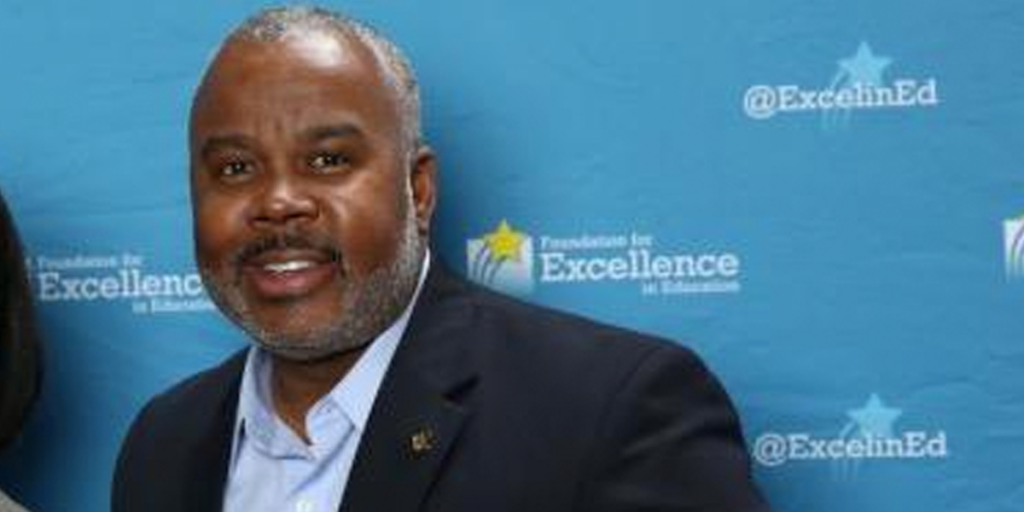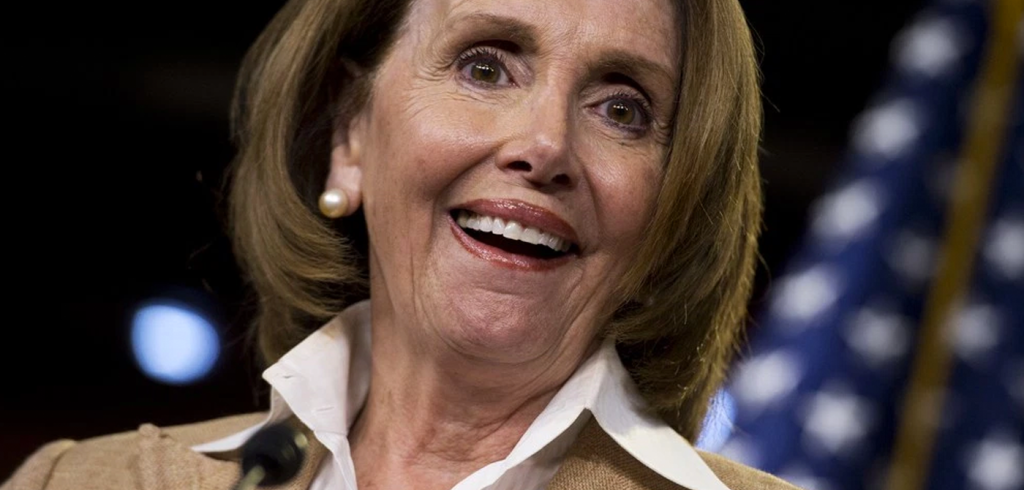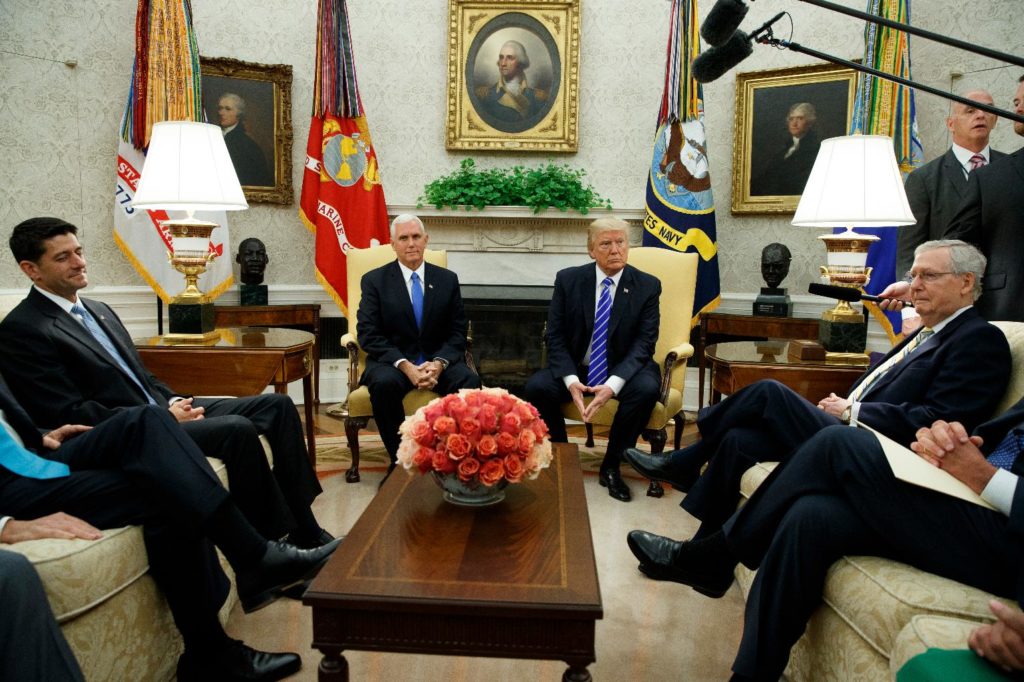Personnel note: Quinton Ross named President of Alabama State University

The Alabama State University Board of Trustees named state Sen. Quinton Ross to be the next president of the University. The Board chose Ross over three other finalists for the job on Friday, pending the verification of his background check. The initial vote was 12 to 2, but a later recommendation by Trustee Darrell Hudson led to a change in the initial tally. “It’s going to take all of us to ensure that our next President is successful,” said Hudson. “Therefore, I would like to see the vote be unanimous.” Trustees Joe Whitt and Robert Gilpin ultimately conceded and changed their votes to “yes,” drawing applause from Board members and the audience. Ross, a state senator from Montgomery since 2002 and the current Senate minority leader, replaces Gwendolyn Boyd whom the Board fired in December for “failure to maintain the confidence of the board.” “Dr. Quinton Ross is a true public servant. He has a heart for Alabama and for Alabama State University. His wealth of experience in higher education and in state government will serve him well as he takes on the mantle of ASU President,” said Governor Kay Ivey who participated in the vote as president of the board. “Alabama State University is a historic institution and is integral to our state’s college and university system. Having received three degrees from ASU, I know my friend Quinton Ross will lead this fine school with distinction and vigor. I look forward to working with him to guide ASU to its brightest days yet.” Anniston-Republican Senate President Pro Tempore Del Marsh congratulated Ross on his selection. “I would like to congratulate my friend Quinton Ross on being chosen as the next President of Alabama State University. Along with his professional qualifications, he is a man of integrity that ASU will be proud to have as its leader,” said Marsh. “While we will miss his leadership in the Senate, there is no doubt that our loss is ASU’s gain. I look forward to working with President Ross in his new capacity.” Born in Mobile, Ala., Ross holds three degrees from ASU — the Bachelor of Science degree in Political Science in 1992, a Master of Arts in Education in 1995 and a Doctorate of Education in Educational Leadership, Policy and Law in 2010.
Martha Roby: Let’s not squander our economic momentum

Cable news might not show it these days, but there are actually great things happening in this country. For one thing, our economy is seeing significant and steady growth, and that’s good news for everybody. Did you know that the economy grew by 156,000 jobs last month? The month before that it grew by more than 200,000 jobs. Did you know that more than 1.3 million jobs have been created just this year? Despite all the division and bitterness that exists on television and social media, I really believe most people are primarily concerned with their ability to get and keep a job so they can provide for their family. I’m encouraged by our economic momentum, but there are some major challenges ahead that will determine whether we will build upon it or squander it. One challenge is our health care system. Letting it continue to fail is not an option. This is an issue Republicans have been campaigning on for seven years, yet when it came time to get it done, the divisions emerged in a pretty stark way. Part of that is the legislative process – we are supposed to disagree, debate, and refine legislation. I’m glad we ultimately passed our Obamacare repeal bill in the House, but after watching what happened in the Senate, it is clear that a broader coalition must be built in order to carry this progress over the finish line. We can’t afford not to get this right, so count me as someone who is ready to roll up my sleeves and get the job done. Another challenge is comprehensive tax reform. The potential that pro-growth tax reform holds for our economy is almost limitless. I believe we need to lower tax rates for every taxpayer so that Americans can keep and invest more of what they earn. We should also lower corporate tax rates to be globally competitive while also closing the loopholes built into the tax code to keep from paying our current high tax rates. Finally, we should clean house at the IRS and make the agency work for the taxpayers, not against them. Another challenge is the nation’s aging infrastructure. Having reliable roads, bridges, ports, and railways is fundamental to our ability to do business, but I’m afraid we haven’t done enough to properly maintain them. If we make these appropriate investments right now and enhance rural broadband access, we can turn what is a serious liability into major strength for our state and our country. One challenge that is critically important, but hasn’t received the attention it deserves, is our skyrocketing national debt. We are now nearly $20 trillion in debt, and I’m worried about how that is going to affect our economic future and the lives of our children and grandchildren. I voted against the latest plan to raise our nation’s debt limit because the proposal did not contain any reforms to curb federal spending. Congress has no business raising the debt limit without reining in the runaway spending that is causing our debt problem. Every day I hear from constituents who are concerned about our nearly $20 trillion in debt and frustrated by Washington’s unwillingness to address it. The problem won’t be easy to solve, but we have to try. The deal that just passed is temporary, so we will have another opportunity to enact spending reforms later this year. I sincerely hope we can negotiate a responsible agreement that will help put our country on a more sustainable financial path. Our country has strong economic momentum building. I will do everything I can to ensure that we capitalize on these historic opportunities and not squander them. ••• Martha Roby represents Alabama’s Second Congressional District. She lives in Montgomery, Alabama with her husband Riley and their two children.
After Donald Trump deal, Nancy Pelosi predicts greater leverage for Dems

House Minority Leader Nancy Pelosi predicted on Friday that Democrats will have increased leverage on immigration and other issues, after a debt and disaster aid deal they cut with President Donald Trump passed the House on the strength of Democratic votes. Pelosi said she makes “no apology” for working across the aisle with a president disdained in her home state of California, arguing that the president now understands Democrats are committed to compromise, “but also to stand our ground.” The package of Harvey aid money coupled with a short-term increase in the debt ceiling and government spending passed Friday 316-90, with all 90 “no” votes coming from Republicans. Pelosi said that vote suggests Republicans are going to have a hard time passing other upcoming spending bills on their own, and will have to turn to Democrats again. “If it’s depending on Democratic votes, it increases our leverage,” Pelosi said in an interview with a small group of reporters. “It gives us a possibility for passing the DREAM Act” as an amendment to spending legislation. The DREAM Act refers to legislation that would provide legal status to immigrants brought illegally to the country as children. Some 800,000 of these immigrants are currently protected from deportation by temporary work permits granted by an Obama administration program, but Trump has said he will dismantle it. He has given Congress six months to act before the program ends. At Pelosi’s urging, Trump sent a tweet Thursday morning reassuring so-called “Dreamers” that they would not be subject to deportation during that six-month period. Pelosi discussed her conversation with Trump precipitating the tweet. She said that after a discussion with Democratic lawmakers about fears in the immigrant community, she had planned to call White House Chief of Staff John Kelly Thursday morning to talk about it. Trump called her first; aides have previously said one purpose was to boast about positive news coverage of the debt deal struck the day before in the Oval Office over GOP objections. But Pelosi launched into the topic of immigration, telling Trump: “‘I’m so glad you called because this is the challenge that we have. I know you did not mean to instill fear, but that is what is happening.’” “‘Well what can I do?’” the president asked, according to Pelosi. “I said, ‘Well, what you always do,’” Pelosi replied, laughing as she recalled the exchange. “‘Put out a message of assurance to people and we want to hold you accountable to that message of assurance.’” Sure enough, no sooner did Pelosi get off the phone and head into a meeting with fellow Democrats where she began recounting her call with the president, the tweet appeared: “For all of those (DACA) that are concerned about your status during the 6 month period, you have nothing to worry about – No action!” Asked her takeaway from that exchange, Pelosi said: “We have to always assume that people are acting with love in their heart. I’m a big believer in that, until they prove differently to me you have to believe it. And I don’t know if the president fully, I don’t know if he understood how cruel that act was,” she said, referring to the decision to end the immigration program. Pelosi also talked about the now-famous Wednesday meeting at the White House where Trump sided with her and Senate Minority Leader Chuck Schumer on the three-month debt limit extension, dismissing calls for a longer extension from Speaker Paul Ryan, Senate Majority Leader Mitch McConnell, R-Ky., and Treasury Secretary Steven Mnuchin. Pelosi said Democrats had the leverage because Republicans didn’t have the votes to pass the longer extension they wanted on their own. She said Trump quickly grasped that. “The president has been in a business where knowing your numbers has been essential,” Pelosi said. “He saw that they didn’t have the votes; we had a plan.” She said voters expect lawmakers and the president to work together. “We have a responsibility to get something done for the American people,” Pelosi said. “I make no apology for trying to do that with the person who’s going to sign the bill.” Republished with permission from the Associated Press.
Daniel Sutter: A lesson for welfare from football?

Each new football season is a time for celebration. Unfortunately we see too many stories about players’ misdeeds, and more troublingly, authorities sometimes looking the other way and enabling bad acts. Yet despite the negativity, many current and former players make great contributions to our communities. Numerous examples can be found in the finalist profiles for the NFL’s Walter Payton Man of the Year award. The assistance players provide particularly to former teammates illustrates how Americans assisted each other before our modern welfare state. But let’s consider some ways that players assist former teammates. For example, Juan Bautista graduated from medical school after playing special teams for Fresno State. Players with a chance to play professionally frequently drop classes after finishing their senior season to prepare for the NFL draft, and later may be unable to afford tuition. Dr. Bautista started a foundation to help former Fresno players complete their degrees. Miami coach Mark Richt recently started The U Network to help former Hurricanes. Networking connects players with former teammates and potential employers. Coach Richt had previously built such a network when coaching at the University of Georgia. Assistance can extend to teammates’ children. Alabama fans might recall the connection between Heisman Trophy winner Mark Ingram’s parents and Tide Coach Nick Saban. Mark Ingram Sr. played at Michigan State. Coach Saban was on the MSU staff, and while ensuring that players attended class, he met Ingram Sr.’s future wife Shonda. After playing in the NFL, Mark Ingram Sr. unfortunately ended up going to prison. And yet a football connection helped Mrs. Ingram keep her son on the right track and eventually led him to Tuscaloosa. Why is this relevant for welfare policy? It might be hard to imagine today, but America did not have a government welfare state until the New Deal. The 19th Century witnessed rapid economic growth, but America was not yet as rich as we are now, so hard times arguably had a greater impact on people than today. Americans still helped others, with organized aid supplementing individual and church-based assistance. University of Alabama historian David Beito has documented the assistance provided by fraternal societies like the Odd Fellows and Woodmen, who offered rudimentary life insurance. Many of these groups evolved from associations set up to assist families of workers killed in dangerous professions, like fishing and whaling. Voluntary groups assisted after natural disasters long before we had FEMA. Economist Emily Skarbek detailed how the Relief and Aid Society distributed millions of dollars of aid to and constructed temporary housing for victims of the Chicago fire. Pittsburgh’s leading citizens similarly assisted after the Johnstown Flood. Football players and fraternal orders helped individuals known to the donors, even if the connection was weak. For example, Miami alumni who never played football sent recruiters to The U Network’s job fair. We are more generous when we have a connection with the people needing assistance. A personal connection allows us to tell if external factors create a need for assistance. Americans have never liked giving alms to the irresponsible. Professor Beito, for example, describes how one 19th Century fraternal organization expelled “Drunkards” and members who played “Cards, Dice, or other Gaming” at meetings. Furthermore, we generally only assist those closest to us when poor choices have created distress. Do fraternal orders or the bonds of teammates provide an alternative to government welfare in modern America? Perhaps not. When community groups and churches provide assistance, persons without connections may not receive help. Government assists strangers and those lacking personal connections to benefactors. On the other hand, America’s welfare system, I think, has always been based on compassion and not a right to assistance. In recent decades, many governments have contracted with nonprofit organizations to deliver social services. In part, this is because nonprofits often provide help more effectively and compassionately than government bureaucrats. So perhaps we are using our past to chart a new course for welfare. ••• Daniel Sutter is the Charles G. Koch Professor of Economics with the Manuel H. Johnson Center for Political Economy at Troy University and host of Econversations on TrojanVision. The opinions expressed in this column are the author’s and do not necessarily reflect the views of Troy University.
Steve Bannon: ‘Access Hollywood’ tape cost Chris Christie a Cabinet post

A meeting about the fallout to Donald Trump‘s presidential campaign over the “Access Hollywood” tape was a litmus test that cost New Jersey Gov. Chris Christie a potential Cabinet post, according to former White House chief strategist Steve Bannon. Bannon, speaking in a “60 Minutes” interview that will air Sunday on CBS, said the “Billy Bush Saturday, to me, is a litmus test.” Bannon, Christie and then-Republican National Committee chairman Reince Priebus met with Trump in October on the weekend after the Washington Post obtained the 2005 video that showed Trump talking with “Access Hollywood” host Billy Bush about kissing, groping and trying to have sex with women who were not his wife. “Billy Bush Saturday showed me who really had Donald Trump’s back to play to his better angels,” Bannon said. “All you had to do, and what he did, was go out and continue to talk to the American people. People didn’t care. They knew Donald Trump was just doing locker room talk with a guy. And they dismissed it.” It was not clear from the video clip what Christie had advised Trump. But Bannon said he told Christie, “The plane leaves at 11 o’clock in the morning. If you’re on the plane, you’re on the team. Didn’t make the plane.” Days later, Christie appeared on a New York radio program and denounced Trump’s comments about women on the leaked tape. “Let’s be really clear. It is completely indefensible,” the Republican governor said. “I made that very clear to Donald on Friday when this first came out and, you know, urged him to be contrite and apologetic because that’s what he needs to be.” Christie, who was among Trump’s earliest supporters, was booted as head of the transition days after Trump’s victory. Christie was soon passed over for top administration positions, including attorney general, though he also turned down several jobs as well, according to a person with knowledge of Christie’s decision who spoke to The Associated Press on the condition of anonymity to discuss private conversations. Christie’s spokesman Brian Murray said Friday that Christie had been offered several positions in the Trump administration. “As has been widely reported, the Governor had been offered multiple cabinet positions in addition to other senior posts in the White House and elsewhere. He chose to stay as Governor and complete his term. Any assertion to the contrary is simply factually incorrect,” Murray said. Republished with permission from the Associated Press.
Another Alabama emergency management officer, Jeff Byard, joins FEMA leadership

Alabama is losing another emergency management leader to the Federal Emergency Management Agency (FEMA). Alabama Emergency Management Agency (AEMA)’s Executive Operations Officer Jeff Byard has been appointed the Associate Administrator for the Office of Response and Recovery (ORR) at FEMA. Byard joins fellow AEMA alum, FEMA Director Brock Long who joined the agency last month, in his new post where he will focus on the agency’s ability, and those of its partners and stakeholders, to respond to all catastrophic events through building, sustaining, and improving response and recovery capabilities. During his tenure with the AEMA, Byard was responsible for the creation and implementation of the Alabama field response structure, which resulted in a more effective and efficient response and recovery model. He also served as the Deputy State Coordinating Officer for the nation’s first large scale host state evacuation event during Hurricane Gustav. From 2006-2007, he served as the Director of Alabama’s Transitional Recovery Office where he led and coordinated the timely delivery of FEMA’s disaster recovery and assistance support to state and local governments. Byard holds a Bachelor of Science degree from Troy University, and is a graduate of the Alabama Public Safety Leadership Academy at Alabama. He was sworn in to his new position Monday morning in the National Response Coordination Center.
Alabama nursing homes stand ready to aid Hurricane Irma evacuees

As residents across the Sunshine State board up their homes and businesses ahead of Hurricane Irma, the Florida Health Care Association (FHCA) is busy working the Alabama Nursing Home Association (ANHA) to coordinate accommodations for residents to ensure patients are safe during the powerful Category 4 storm. The ANHA confirms to Alabama Today that they are providing bed availability and contact information for Florida nursing homes. “The number of Florida nursing home residents evacuated to Alabama will depend on how many facilities choose to evacuate and where they choose to relocate,” said NHA spokesperson John Matson. “Florida nursing homes may choose to relocate to other states. Due to Hurricane Irma’s predicted path and the number of people living in Florida nursing homes, we expect Florida nursing home residents will be relocated across Alabama.” Regardless of FHCA’s evacuation plan, with 229 nursing homes and a licensed bed capacity of 26,700, the ANHA, which represents 94% of Alabama nursing homes, stands ready to help. Thus far mandatory evacuation orders cover parts of Miami-Dade County, Broward County east of US 1, Palm Beach County, low-lying parts of Brevard County, and Monroe County, home to the Florida Keys. Many expect that the mass exodus from South Florida could become one of the largest evacuations in US history.
For Donald Trump and Paul Ryan, an already frosty relationship grows colder

It started out cold as ice, and then turned warm and friendly. Now the tortured relationship between President Donald Trump and House Speaker Paul Ryan has gone cool again, with the Republican president making clear he has no qualms about bucking the GOP leader to cut deals with his Democratic foes. The two men dined at the White House Thursday night and discussed legislative challenges ahead for the fall, a get-together that was scheduled over Congress’ August recess, long before the head-spinning events of this week. In a moment that stunned Washington, Trump cut a debt and disaster aid deal Wednesday with Congress’ Democratic leaders as Ryan and Senate Majority Leader Mitch McConnell watched on helplessly, after lobbying unsuccessfully for much different terms. The moment distilled the inherent tensions between Trump, 71, a former Democrat and ideologically flexible deal-maker, and Ryan, 47, a loyal Republican whose discomfort with Trump led him to withhold his endorsement for weeks last year. After Trump was elected the two papered over their differences and even developed a rapport, talking frequently during health care negotiations earlier this year, as each understood they needed the other to advance individual and shared goals. But their phone calls have tapered off of late and Trump has expressed his frustration with GOP leaders on multiple fronts, culminating in the president’s decision to ditch them and join hands with the Democrats instead. Trump exulted in his newly bipartisan approach Thursday, declaring it “a great thing for our country,” while Ryan mostly grinned and bore it. At the Capitol on Wednesday, Ryan had deemed a three-month debt ceiling increase as “unworkable” and “ridiculous.” Yet an hour later, Trump overruled his strong objections to side with the Democrats. The president’s rebuff on the debt came just days after Trump ignored Ryan’s pleas not to end the program to aid immigrants brought to the country as children and living here illegally. Instead, Trump ended the program and tossed the issue to Congress to resolve in six months. The debt deal headed for House passage Friday along with $15 billion in disaster aid and a three-month government funding extension. Indeed for Ryan, GOP reactions to the deal exposed some lurking threats to his perch atop a conference where unrest brews nearly ceaselessly among conservatives, and there have been recent rumblings of a possible coup. Trump remains highly popular in the conservative districts occupied by many House Republicans, much more so than Ryan himself, who is scorned by many in the GOP base as an establishment sell-out. In a whipsawed moment, some House Republicans defended Trump’s handling of a deal they don’t like, while simultaneously criticizing Ryan, who had been overruled by the president. It also underscored the political pressure on Ryan to try to remain in the president’s good graces even when Trump is flirting with Democrats. Rep. Steve King, R-Iowa, said the message in his conservative district is that “congressional Republicans need to get behind the president.” That sentiment “makes him weaker,” King said of Ryan. Rep. Paul Gosar of Arizona described Ryan as “very unpopular” in his district, while regard for Trump is “pretty high.” As far as his constituents are concerned, Gosar said, they’d be happy if Ryan got the boot and Trump stayed. “That’s kind of the mantra in my district,” he said. For his part, Trump has soured on the Republican congressional leadership in recent months, fuming to associates that they led him astray on their health care strategy, among other complaints. The president has told those close to him that he regrets choosing to tackle the repeal and replace of Barack Obama‘s health care law as his first legislative push. He has singled out Ryan for blame, saying the speaker assured him it would pass and instead handed him an early, humiliating failure, before ultimate House passage of a revived bill, according to three White House and outside advisers familiar with the conversations but not authorized to speak about them publicly. GOP health care efforts collapsed in the Senate in July. Trump has spoken to Ryan less frequently in recent weeks, particularly after the departure of his first chief of staff, Reince Priebus, who has deep Wisconsin ties to the speaker. Priebus would sometimes broker the calls and stress to each man their importance, according to two people familiar with the conversations. Those calls have occurred less often since John Kelly took over as chief of staff. Though Trump has expressed particular anger at McConnell for the failed Senate health care vote and for not protecting him from the Russia investigation, he grudgingly has told associates that he is aware of the Senate leader’s grip on power. He has spoken less glowingly about Ryan’s own ability to lead due to the shorter House terms and the growing insurgency within the conservative Freedom Caucus. Ryan’s position is seen as secure for now, if only because it is widely accepted that no other House Republican could garner the support needed to replace him. But even allies believe his tenure in the job could be finite, and might depend in part on the whims of a president with whom he has no real deep ties. “I think any speaker is going to have a very difficult time in this environment,” said Rep. Tom Reed, R-N.Y. “The nature of that job, I think, over time, they don’t last.” Republished with permission from the Associated Press.
Appeals court rules Donald Trump’s travel ban doesn’t include grandparents, other extended family

Grandparents, cousins and similarly close relations of people in the United States should not be prevented from coming to the country under President Donald Trump‘s travel ban, a federal appeals court has ruled in another legal defeat for the administration on the contentious issue. The decision Thursday from three judges on the 9th U.S. Circuit Court of Appeals upheld a ruling by a federal judge in Hawaii, who found the administration’s view of who should be allowed into the country under the ban is too strict. The unanimous ruling also said refugees accepted by a resettlement agency should not be banned. “Stated simply, the government does not offer a persuasive explanation for why a mother-in-law is clearly a bona fide relationship, in the Supreme Court’s prior reasoning, but a grandparent, grandchild, aunt, uncle, niece, nephew, or cousin is not,” the 9th Circuit said. The appeals panel wrote that under typical court rules, its ruling would not take effect for at least 52 days. But in this instance, the judges said, many refugees would be “gravely imperiled” by such a delay, so the decision will take effect in five days. “Refugees’ lives remain in vulnerable limbo during the pendency of the Supreme Court’s stay,” they wrote. “Refugees have only a narrow window of time to complete their travel, as certain security and medical checks expire and must then be reinitiated.” The Justice Department said it would appeal. “The Supreme Court has stepped in to correct these lower courts before, and we will now return to the Supreme Court to vindicate the executive branch’s duty to protect the nation,” the agency said in a statement. The U.S. Supreme Court said in June that President Donald Trump’s 90-day ban on visitors from Iran, Libya, Somalia, Sudan, Syria and Yemen can be enforced pending arguments scheduled for October, partially overturning lower-court rulings. But the justices said it should not apply to visitors who have a “bona fide relationship” with people or organizations in the U.S., such as close family ties or a job offer. That set the stage for much disagreement over what constitutes a bona fide relationship. The government interpreted such family relations to include immediate family members and in-laws, but not grandparents, cousins, aunts and uncles. The judge in Hawaii overruled that interpretation, expanding the definition of who can enter the country to the other categories of relatives. He also overruled the government’s assertion that refugees from those countries should be banned even if a resettlement agency in the U.S. had agreed to take them in. The administration argued that resettlement agencies have a relationship with the government, not with individual refugees. The appeals court rejected that, saying the Supreme Court was concerned with any harm the travel ban might impose on people or organizations in the U.S. Resettlement agencies have spent time and money securing rental housing, buying furniture and performing other tasks that would be in vain if the refugees were blocked, the 9th Circuit said. They also would lose out on government funding for the resettlement services. Lawyers for the government and the state of Hawaii, which challenged the travel ban, argued the case in Seattle last week. Deputy assistant attorney general Hashim Mooppan ran into tough questions as soon as he began arguing the government’s case, with Judge Ronald Gould asking him from “what universe” the administration took its position that grandparents don’t constitute a close family relationship. Mooppan conceded that people can have a profound connection to their grandparents and other extended relatives, but from a legal perspective, the administration had to draw the line somewhere to have a workable ban based largely on definitions used in other aspects of immigration law, he said. Hawaii is also one of 15 states that sued the Trump administration Wednesday over its plans to end the Deferred Action for Childhood Arrivals program that protects young immigrants from deportation. “Today’s decision by the 9th Circuit keeps families together. It gives vetted refugees a second chance,” state Attorney General Douglas Chin said in a statement. “The Trump administration keeps taking actions with no legal basis. We will keep fighting back.” Republished with permission from the Associated Press.
Alabama Court of Civil Appeals says judge wrongly blocked minor’s abortion

The Alabama Court of Civil Appeals on Thursday overruled a lower court judge who refused to give a minor permission for an abortion despite finding she was “sufficiently mature” enough to make the decision. Alabama law requires unemancipated minors must have the permission of her parent or guardian to have an abortion. In this case, the minor petitioned a juvenile court for a judgment waiving the requirement of parental consent to allow her to have an abortion. The juvenile court conducted a hearing and on August 16, 2017, the court entered a judgment denying the minor’s petition. She appealed. The appellate court said the judge misapplied the law and thus reversed the decision. “The juvenile court’s judgment is reversed, and this court hereby renders a judgment granting a statutory waiver of parental consent,” read the opinion of the Court of Civil Appeals.
William J. Canary: The timing for tax reform is right

Congress returns to Washington facing enormous challenges. These include passing a domestic tax cut that is important for this and future generations. President Donald Trump has suggested a tax cut to reduce the unbelievable domestic income tax rate for corporations, including manufacturers, of 39 percent, to a competitive 15 percent. In addition, Congress must lower the tax rate for the two-thirds of manufacturers that pay taxes at individual tax rates as pass-through entities. The pass-through rate on small business owners can be as high as 44 percent, according the National Association of Manufacturers. These small businesses are the backbone of our economy and create the majority of jobs. A 2015 NAM study concluded that a reform package like this could add more than $12 trillion in Gross Domestic Product over 10 years, deliver more than 6.5 million jobs to the U.S. economy, and increase investment by more than $3.3 trillion, NAM Chairman David Farr said in a recent speech to the Economic Club of New York. (Farr is chairman and CEO of Emerson, a global manufacturer.) Combined with overarching regulations, the burdensome tax rate makes it harder for manufacturers to meet intense competition for business and jobs. A tax rate of 39 percent – higher when you throw in state and local taxes – is a crushing obstacle when competing against manufacturers in the top 35 industrialized nations who enjoy a tax rate, on average, half that of the United States. A tax cut will create jobs for Alabama manufacturers that compete internationally against lower tax rates. This nation’s bountiful resources, which include willing investors and hard-working men and women (a recent study showed that Americans are among the hardest-working in the world), can be stifled by a non-competitive tax code. The timing for tax reform is right. As the market is proving, businesses and individuals have been investing in anticipation of a tax cut and its effect on manufacturers, jobs, and our families’ standards of living. ••• William J. Canary is president and CEO of the Business Council of Alabama, the state’s exclusive representative of the National Association of Manufacturers and the U.S. Chamber of Commerce.
Birmingham hopes Amazon’s new $5 billion 2nd headquarters will call the Magic City home

Amazon is outgrowing its Seattle headquarters and has officially begun hunting for a second home. According to AL.com Birmingham Mayor William Bell wants to bring the new headquarters to the Magic City, which could potentially bring 50,000 jobs to the area. The online retail giant said on its website Thursday morning it plans to invest more than $5 billion to build and operate the new headquarters, which it is calling “Amazon HQ2,” and that up to 50,000 employees would work there. “We expect HQ2 to be a full equal to our Seattle headquarters,” Jeff Bezos, Amazon’s chief executive, said in a statement. “Amazon HQ2 will bring billions of dollars in upfront and ongoing investments, and tens of thousands of high-paying jobs. We’re excited to find a second home.” The company said HQ2 “could be, but does not have to be”: “An urban or downtown campus.” “A similar layout to Amazon’s Seattle campus.” “A development-prepped site. We want to encourage states and communities to think creatively for viable real estate options, while not negatively affecting our preferred timeline.” In addition to Amazon’s direct hiring and investment, construction and ongoing operation of Amazon HQ2 is expected to create tens of thousands of additional jobs and tens of billions of dollars in additional investment in the surrounding community. Amazon estimates its investments in its Seattle headquarters operations resulted in an additional $38 billion to the city’s economy, from 2010 through 2016. Upon hearing the news, leaders of more than 20 cities in the U.S. and Canada immediately announced plans to bid on the headquarters, including New York City, Chicago and Los Angeles as well as smaller cities like Greensboro, NC and San Antonio, Texas, according to news reports. Hopeful cities have a little more than a month to submit a proposal, and the company said it will make a final decision next year. Incentives from land to fee cuts to relocation packages will be among other major factors Amazon takes into account when making its decision the company said. An Amazon facility in Birmingham would be the second for the Yellowhammer State. The company already has a sorting facility set to open in Mobile later this year.


